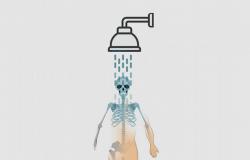
It is not true, as some have stated, including President Gustavo Petro, that this weekend the extreme right won the elections to the European Parliament.
The results of the vote, in the 27 countries of the European Union (EU), ratified the centrist majority that until now has supported Ursula von der Leyen, current president of the European Commission, the executive body of the EU.
(In context: Emmanuel Macron advances elections in France after victory of Marine Le Pen’s party in the European votes)
This time there will be about 400 deputies out of the 720 total, bringing together the center-right of the European People’s Party (186 seats), the liberal centrists of Renew Europe (79 seats) and the social democrats and moderate socialists of the SD (135 seats).
Although the radical right did not win, it did advance compared to the results of five years ago, by overcoming the barrier of 130 deputies between the identitarians of ID and the conservatives and reformists of ECR, plus a dozen seats of extremists that some describe as neo-fascist, such as the German AfD, which achieved 16% of the votes against 11% in 2019.
In Italy, Prime Minister Giorgia Meloni He won the elections with his FdI party (Brothers of Italy), which once again prevailed thanks to its strategy of moving away from the radical positions of the extreme right and moderating both its program and its language.
(You may be interested in: ‘The extreme right wins Europe’: is Gustavo Petro’s statement about the EU parliamentary elections true?)
The extreme right also gained weight in Austria, Belgium, the Netherlands and some Eastern European countries. But, the loudest victory was obtained in Francewhere Marine Le Pen’s National Regroupment (RN) got 31.3% of the votes for its head of the list, Jordan Bardella, just 28 years old, against just 14.6% for the Macronist coalition, 13.8 % of the socialists led by Raphael Glucksmann and 9% of the populist left of the France Insoumise (LFI) coalition.
The leader of the French Rassemblement National (RN) party, Marine Le Pen (i), addresses the militants.
Photo:AFP
“The rise of nationalists, of demagogues, is a danger for our Nation but also for Europe,” he explained. “That is why I decided to give you the possibility of choosing our parliamentary future, and as of tonight I am consequently dissolving the Assembly…” he said in a speech from the Elysée Palace.
Even among those who were betting on a harsh defeat for Macron – which occurred almost exactly as the polls predicted – few considered it a serious possibility that Macron would dissolve parliament. Le Pen and Bardella, the night’s winners, were surprised by the news, and the RN leader was forced to make last-minute changes to her victory speech.
(Also: France: President Emmanuel Macron refuses to resign ‘whatever the result’ of the early legislative elections)
Emmanuel Macron announced an advance of Legislative elections in France.
Photo:AFP
But Macron looks into the abyss: if the lists of his coalition repeat in the legislative elections of June 30 and July 7 (there is a double round), the poor 14.6 percent of the Europeans will be reduced to being a group very minor.
The president is tired of being on the defensive, and although his move is very risky, at least it allows him to regain the initiative and set the agenda
Still, and according to what a French government source told EL TIEMPO, “President Macron is tired of being on the defensive, and although his move is very risky, at least it allows him to regain the initiative and set the agenda.” The editorial writer of the newspaper Le Figaro described the decision as a “roll of the dice,” and described it, in a critical tone, as “a leap into the unknown, with incalculable consequences.”
(You can read: What are the political effects that the results of the Parliament votes will have in Europe?)
Heading towards cohabitation in France after calling for early elections?
Between 1986 and 1988, and between 1993 and 1995, the socialist president François Mitterrand was forced to rely on a right-wing prime minister, first Jacques Chirac and then Edouard Balladur. And between 1997 and 2002, Chirac – already President – had to cohabitate with the socialist prime minister Lionel Jospin.
Demonstrations in Paris against the victory of the extreme right in the European elections.
Photo:AFP
The same is not true of Le Pen and Bardella: they are very critical of the EU and, in the current situation, they want to distance France from supporting Ukraine against the Russian invader. “We must not forget – the government source reminded EL TIEMPO – that Mrs. Le Pen received loans from a Russian bank close to Vladimir Putin, for one of her past campaigns.”
(Keep reading: Why did the right have good results in the European elections? Four keys to understanding it)
The head of state calculates that the voters, perhaps frightened by the shock wave that their collective choice (for Europe) has just caused, are going to amend in the legislative elections the vote they have just expressed.
And adds that Macron hopes “by dramatizing the challenge and throwing himself into the campaign, he will restore the situation and – perhaps by virtue of new alliances – rebuild a majority.” Majority that, after the 2022 legislative elections, was no longer absolute as it had been in his first term (2017-2022).
With the 2027 elections in sight
Rassemblement National (RN) party president and senior MEP Jordan Bardella.
Photo:AFP
After being elected head of state in 1981, Mitterrand lost the 1986 legislative elections and, consequently, appointed Chirac, his opponent, as prime minister. Two years later, in the 1988 presidential elections, Mitterrand defeated him and won re-election.
Chirac finally won the Presidency in 1995, but in 1997 his party lost the legislative elections and he had to appoint the socialist Jospin as prime minister. Then, in the 2002 presidential elections, much more worn out than Chirac, Jospin lost the elections and Chirac thus won his re-election.
(More news: Hunter Biden: can his father and US president, Joe Biden, pardon him for a historic conviction? The 5 keys to the case)
Macron’s name will not be at stake in 2027, but perhaps that of some of the figures in his coalition, such as his former Prime Minister Edouard Philippe, 53 years old, or like Gabriel Attal, his current prime minister, who is barely 36. If Bardella took over as prime minister in this new cohabitation, he would also face wear and tear. This explains why Le Pen has made it clear that it would be him and not her who would occupy the position, in case the RN wins the legislative elections.
Due to the country’s complex economic situation (a public debt of 110% of GDP and stagnant growth), and the security challenges, as well as the risks involved in the war in Ukraine, Bardella would not have an easy time. Neither the debt is going to go down quickly, nor is security going to improve soon. The great promise of the RN, and for which a large sector of voters supports it, is to stop illegal immigration. But that is not achieved overnight either.
Emmanuel Macron.
Photo:EFE
The three-week lightning campaign has just begun, and there are many unknowns about the alliances that can occur across the broad spectrum of parties. that goes from the radical left to the extreme right. Is the left going to repeat its unity lists of 2022, with a worn-out Jean-Luc Mélenchon at the helm? Or on the contrary, after the success achieved by Raphael Glucksmann’s socialist lists in the European ones, is this group going to go separate?
(In other topics: Elections in Venezuela: they reveal why Gustavo Petro’s plebiscite proposal could not advance and ‘shipwrecked’ in the attempt)
And something else: will Le Pen manage to drag moderate right-wing leaders from the Republicans group to her lists, which obtained a very mediocre result in the European elections of just 7.2%? And finally, will the Macronist lists be able to recover some ground, at a time when their leader is more unpopular than ever? Many more questions than answers for now.
The only thing certain is that, beaten and cornered, and risking everything in a very risky bet, President Emmanuel Macron can claim that his move gave him back the option to manage the times, to once again be “the master of watches” as he has been described so many times. But at what cost?
[email protected] /Instagram @mvargaslinares





